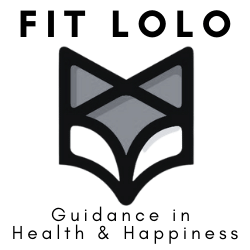170609 - Food Fact Friday w/ Coach Bri - "Stress and Nutrition"
Stress and Nutrition
None of us are strangers to stress, but there are proactive ways we can alleviate stress in our lives and, you guessed it, good nutrition is one of those ways! Although stress can cause a negative cycle of sleep loss, caffeine and sugar abuse, hormone and blood sugar deregulation and poor nutrition, there are many ways to manage this cycle!
Physical Activity
I know I’ve sung your praises in previous posts about this, but you all are already taking a great first step in combating stress by coming into the gym regularly. A physical activity routine like CrossFit is one the best ways to get on top of stress. Luckily, focusing on good nutrition can also make a big difference when you are working to manage your stress. Here are some nutrition recommendations to help break stress cycle.
Balanced Eating
First, eating regularly throughout the day can help regulate hormone and blood sugar levels. Studies continue to find that eating when you wake up is important. Keep healthy snacks with you so that you’ll be less tempted to reach for something junky. Planning ahead with some meal and snack prep for the week can go a long way toward managing stress.
Here are some more specific nutrition recommendations that may be beneficial in reducing stress levels!
Caffeine & Alcohol
The next recommendations are related to two substances that many of us hold near and dear: caffeine and alcohol. While both of these things can make us feel great, they can both contribute to stress in different ways. Caffeine increases blood pressure and can increase feelings of anxiety, especially if you are already anxious as a result of stress. Try trading caffeine for more sleep since caffeine has only been found to restore our concentration back to levels lost from lack of sleep. Alcohol’s initial effects on the body are relaxing, but as we burn alcohol off, it can make us restless and lead to sleep disturbance. Going out for a few drinks with friends is one thing, but relying on alcohol as a way to treat stress isn’t all that effective long-term.
Omega-3 Fats
Omega-3 fatty acids make up cell membranes, especially in the brain. Deficiencies in these types of fats have been found to result in depression or anxiety. Depression can compound feelings of stress, and the other way around. Some good sources of omega-3 fats include: salmon, albacore tuna, sardines, walnuts, walnut oil, flax seed, and leafy vegetables.
Protein
Protein is made up of amino acids. Amino acids make up many of the neurotransmitters in our brain which contribute to feelings of well-being and happiness. Also, eating protein helps us feel fuller longer and can help regulate blood sugar levels to avoid rapid drops. Some good sources of protein include: chicken, beef, pork, lamb, salmon, tuna, and eggs.
Fiber
Fiber has been found to be associated with increased alertness and lowered perceived stress. Also, foods that contain fiber often contain important minerals and vitamins like the B vitamins that have been associated with improved mood. Fiber-containing foods can also help keep your blood sugar levels regulated. Some good sources of fiber include: Fruits and vegetables, nuts, seeds and legumes.
If you are interested in reading more on this topic, you can check out the links below:
http://www.nutritionist-resource.org.uk/articles/stress.html
WOD
"White"
Five rounds for time of:
15' Rope climb, 3 ascents
10 Toes to bar
21 Walking lunge steps with 45/25 plate held overhead
Run 400 meters
(35 min time cap)


